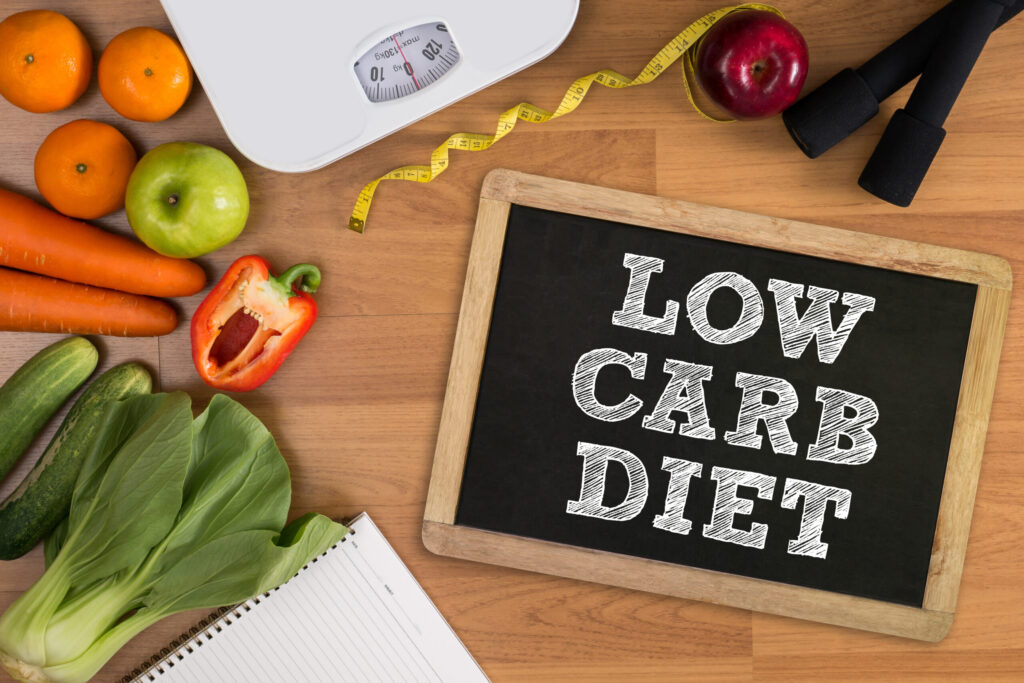LOW CARBOHYDRATE DIET
– pluses and… minuses –
It is also known as the “low-carb diet,” being a dietary approach that involves reducing the intake of carbohydrates, i.e. sugars and starches. Instead, increase the consumption of proteins (more or less healthy) and healthy fats.

Two versions of the regime
In the classic version, you will eat foods such as meat and fish, in abundance, along with some leafy vegetables, nuts and seeds. But, you must know that after the cases of immune deficiencies and proliferative diseases increased, a more…intelligent variant was born. This adapted diet involves eating mostly eggs, legumes (soy, chickpeas, peas) and ocean fish, with more green leafy vegetables and unroasted seeds. But in both versions, bread, pasta, rice and sugars are almost completely avoided.
What do you learn in this article about the low carb diet?
In the following, you will find out the advantages and disadvantages of this weight loss diet. Moreover, you will have a clear and easy to adapt example for daily low carb diet menus, as well as some recommendations for herbal formulas to catalyze weight loss.
Pros of the low-carb diet include:
- Weight loss: Cutting carbs often leads to decreased appetite and fat burning, helping to shed extra pounds.
- Abdominal fat reduction: it is also supported by sports exercises, having advantages not only for aesthetics, but also for health: it prevents diabetes, hypertension, heart attack.
- Blood sugar control: This diet can be beneficial for people with type 2 diabetes because it can help keep blood sugar levels under control.
Cons of the low carb diet include:
- Fiber deficiency: Cutting carbs leads to low fiber intake, which affects digestion and gut health. In the first, you get constipated pretty badly, which leads to general intoxication and sickness. But you compensate for this shortcoming with 2 exceptional formulas: KG-SLIM and PLURI DETOX .
- Potential nutritional deficiencies: Excluding certain foods, such as fresh fruit, can lead to a lack of essential nutrients. Formulas, such as Multiminerals and Multivitamins, can compensate for this deficit, but only partially.
- Difficult to maintain: It is a restrictive diet and can be difficult to maintain long term.
A standard and healthier low carb diet menu looks like this:
Here’s a daily menu plan for a low-carb, low-meat diet with an emphasis on eggs, legumes, oilseeds, and ocean fish. This plan offers balanced options for breakfast, lunch and dinner:
Breakfast
- Omelette with spinach, feta cheese and tomatoes. Eggs are rich in protein and healthy fats.
- A handful of almonds or walnuts, which add healthy fats and fiber.
Lunch
- Greek salad with tomatoes, cucumbers, olives, feta cheese and an olive oil and lemon dressing. Add grilled chicken or tofu for protein.
- Lentil soup. Legumes are an excellent source of protein and fiber.
Dinner
- Ocean fish, such as salmon or tuna, baked with herbs and olive oil.
- Grilled asparagus or broccoli.
- Avocado salad with olive oil and balsamic vinegar dressing.
If your heart asks for days and a… Snack
- A Greek yogurt with berries or chia seeds for extra protein and healthy fats.
CONCLUSIONS regarding the low-carbohydrate diet
This tailored, low-carb diet plan offers a variety of healthy, nutrient-dense foods while keeping carbs low. Make sure you drink enough water and monitor portions to control caloric intake. Consult a nutritionist or physician for adjustments to suit your individual needs. Also, use formulas like DVR SILHOUETTE to help your bowel movement a bit and catalyze your weight loss. In case of constipation, use KG-SLIM with confidence, which is also a very good short-term weight loss accelerator.
Some of the scientific studies that form the basis of this article
- Healthy fats : The study ” Effects of a low -carbohydrate diet on weight loss and cardiovascular risk factor in overweight adolescents” by William S. Yancy Jr. et al., published in “The New England Journal of Medicine” in 2008.
- Lean proteins : The study “A high-protein diet with resistance exercise training improves weight loss and body composition in overweight and obese patients with type 2 diabetes” by Michael H. Sharman et al., published in “The Journal of Nutrition” in 2017.
- Restricted carbohydrates : The study ” Long-term effects of a ketogenic diet in obese patients ” by Martin Röjdmark et al., published in “The Journal of Clinical Endocrinology & Metabolism” in 2003.
These studies provide a solid foundation for understanding the effectiveness and benefits of each of the diets mentioned in the context of weight loss and overall health. However, consultation with a medical professional remains essential before starting any of these diets.

